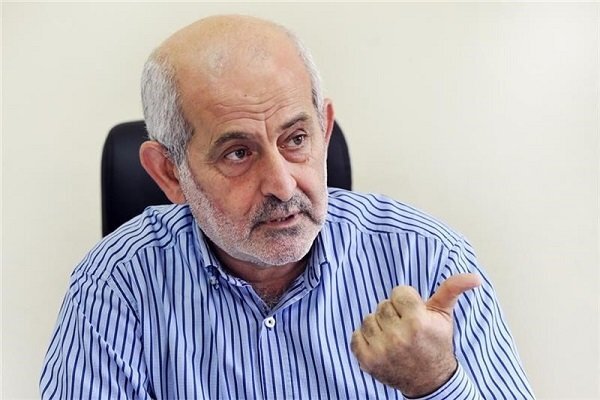Kuwait Emir always had fears of Saudi policies: Lebanese academic

TEHRAN - Head of the Center for Political Studies at the University of Lebanon says that Kuwaiti Emir Sheikh Sabah al-Sabah was always concerned about Saudi adventures in the region, fearing Riyadh may push other Arab countries into wars of attrition.
In an interview with the Tehran Times, Dr. Talal Atrissi says that the Kuwait Emir "always had fears of Saudi policies that might push Kuwait and other Arab countries to wars they didn't want."
The following is the text of the interview:
Q: How do you assess the role of Kuwait and its late Emir in the region?
A: Kuwait has adopted a policy of not engaging in the coalition, whether between the Arab countries or between the Persian Gulf states and Iran. It has maintained positive relations with most Arab countries as well as with Iran and has refused to be a party whether in the Yemen war or other wars.
In Lebanon also it has always played the role of a mediator and provided aid for the Lebanese people. This is what made Kuwait a moderate country among the region's countries, regardless of their different systems and policies. Even regarding the Syrian crisis, it did not follow the policies of Saudi Arabia and the Emirates. Therefore, the absence of the Emir of Kuwait is a big loss for the region.
Kuwait was not hostile to any country, and this policy kept it away from joining Saudi adventures.
Kuwait Emir Sheikh Sabah al-Sabah always had fears of Saudi policies that might push Kuwait and other Arab countries to wars they didn't want.
Q: How do you see the political future of Kuwait after the death of the Emir?
A: Regardless of the approaches of Nawwaf Al-Ahmad, who will take power in Kuwait, the country will most likely maintain its usual policies in terms of independence and not entering coalitions because Kuwait is concerned about Saudi Arabia's policies.
Kuwait considers itself threatened by Saudi-Emirati expansionist policies and their intervention beyond their borders. There is a delicate balance inside Kuwait as it consists of different religious components that influence the country, and it prevents any change in Kuwait's usual policy by the new Emir.
Q: What are the repercussions of the Emir’s death on the Persian Gulf and the Arab world in general?
A: The death of Kuwait’s Emir Sheikh Sabah al-Sabah will not change much in the equations of the (Persian) Gulf and the Arab world, especially if the new Emir, Nawaf Al-Ahmad, maintains the moderate policies of the late Emir.
But if there is a change in policies, whether in Kuwait's relations with Saudi Arabia or coalescing the Saudi-Emirati policies, of course, this will affect the regional equations, and the situation will be against Kuwait's interests.
In this context, the Kuwaiti parliament plays an important role in rationalizing Kuwait's politics and directing political forces. There is a certain percentage of freedom and democracy in Kuwait. So, it is in Kuwait's interest to maintain its moderate policies, and if the new Emir continues the previous policies, the region will not witness a considerable change.
“After a blockade of Qatar by Saudi Arabia and the Emirates, Kuwait and Oman felt worried because what happened with Doha could happen to Kuwait, especially since there was a project to invade Qatar and stage a coup against the Emir of Qatar.”
Q: What are the reasons that Kuwait and Oman have so far followed a policy independent from Saudi Arabia?
A: Kuwait and Oman attempt to be independent and not follow Saudi Arabia and the UAE's policies because these two countries try to intervene in the domestic affairs of other countries.
Saudi Arabia previously played the role of a mediator to solve problems between Arab and Islamic countries. Saudi Arabia was presenting itself on the basis that it mediates to resolve conflicts without being a party to these conflicts, and in a certain period, it tried to establish positive relations with Iran.
The Emirates also had its economic and transit role between the countries of the region and the world, and this matter was comfortable for Kuwait and did not pose any threat, but after a blockade of Qatar by Saudi Arabia and the Emirates, Kuwait and Oman felt worried because what happened with Doha could happen to Kuwait, especially since there was a project to invade Qatar and stage a coup against the Emir of Qatar.
Thus, Kuwait still has concerns and is cautious about the policies of Saudi Arabia and the UAE, which explains why Kuwait and Oman want to have independent policies.
Saudi Arabia, especially since Crown Prince Mohammed bin Salman became de facto leader, has entered adventures, and no one can predict or anticipate its policies in the region. For example, the war on Yemen, the escalating hostile stance against Iran, or involvement in the war on Syria. Thus, Kuwait is concerned with the new power situation in Saudi Arabia.
Q: Don’t you think that after the death of the Emir, Kuwait would come under more pressure to join other states to normalize ties with Israel?
A: I do not think that Kuwait would join the (Persian) Gulf normalization group. The positions of Kuwait and the Kuwaiti media till now have been clear in rejecting the normalization of ties with Israel and commitment to supporting the cause of Palestine and Kuwait. They do not find themselves forced into such relations, especially since Kuwait's internal situation does not allow such a matter, and the Kuwaiti leadership is also not enthusiastic about such normalization and does not want to appear as a client state. Kuwait wants to show its independence by refusing the normalization of ties with the Zionist regime.
Leave a Comment